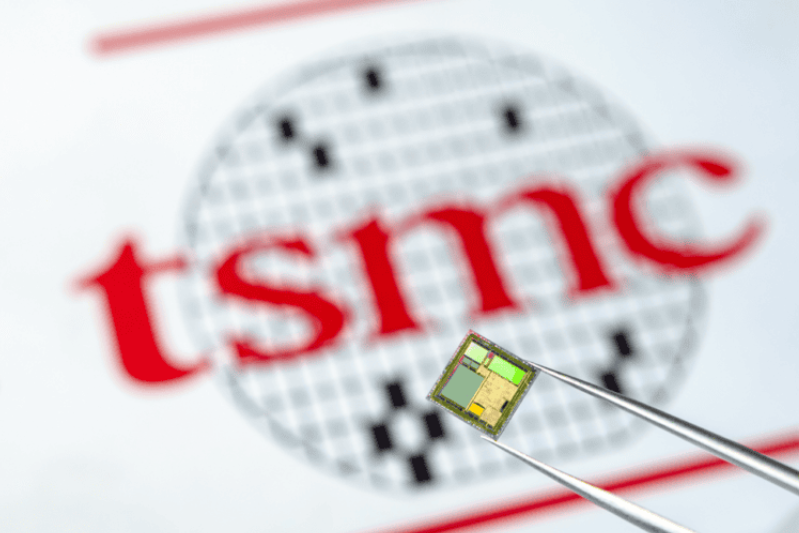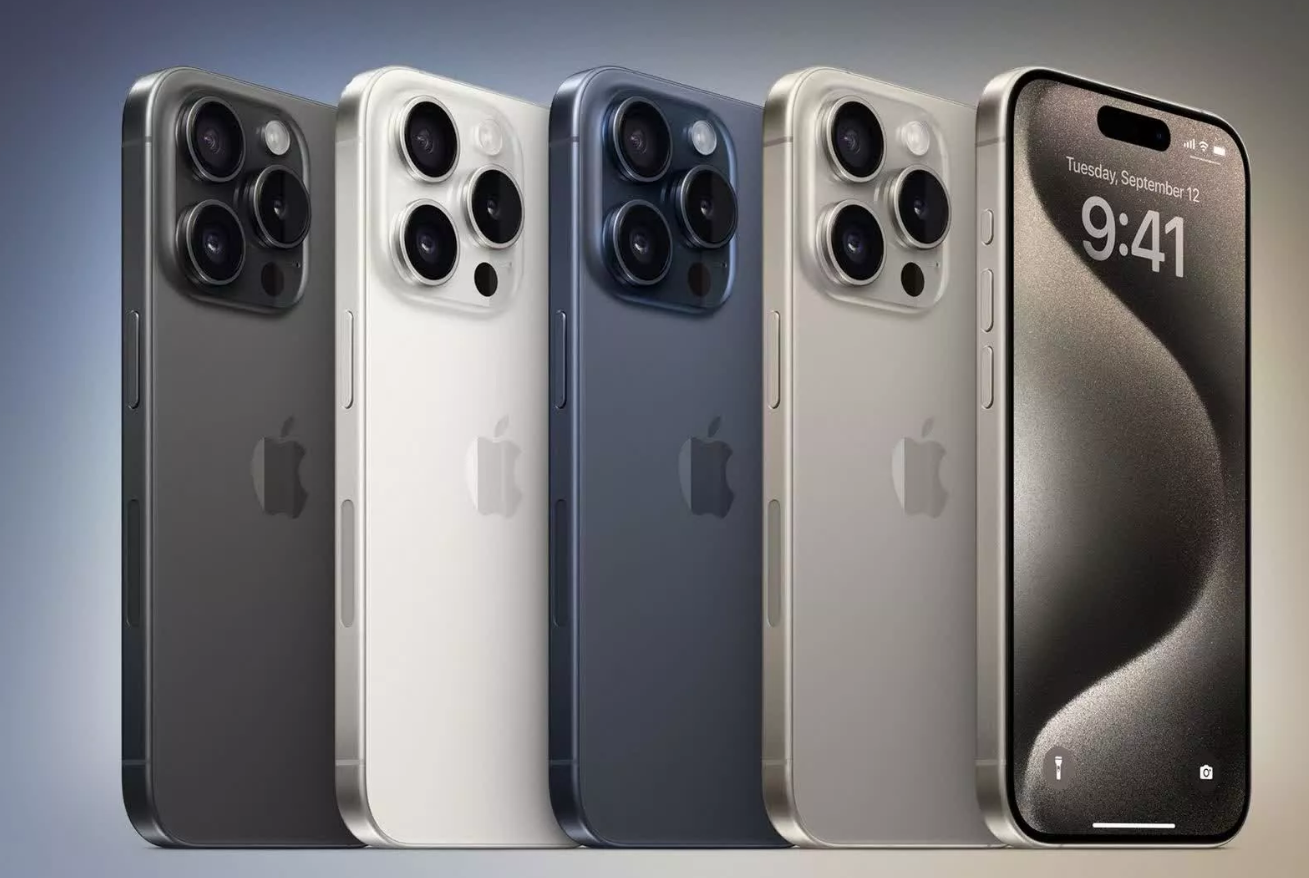Highlights
- iPhone 17 Pro rumored to be the first to use TSMC’s advanced 2nm chip technology.
- TSMC’s 2nm production aligns with iPhone 17 Pro’s release, hinting at a late 2023 low-volume start.
- Apple might have exclusive access to TSMC’s initial 2nm chips, leading the mobile computing race.
- The move to 2nm chips sets the stage for further advancements and AI capabilities in mobile technology.
While Apple remains tight-lipped about its upcoming iPhone 16, rumours are already swirling about the next generation – the iPhone 17 series.
A recent report reveals details about the top-tier iPhone 17 Pro model.
It suggests Apple’s flagship for next year could be the first smartphone to feature a chipset built on TSMC’s advanced 2nm process technology.
TSMC’s 2nm Chips: Timing is Everything

The Taiwanese company kick-started its 2nm program back in 2022, fuelling speculation that Apple could be among the first to commercially deploy these cutting-edge chips.
Insiders suggest TSMC will begin low-volume 2nm production by late 2023, gearing up for full-scale manufacturing in early 2025 – conveniently aligning with the iPhone 17 Pro’s projected release timeline.
Apple’s Potential 2nm Exclusivity

Rumours were floating that Apple has secured exclusive rights to TSMC’s initial 2nm output, a strategic move that could grant the Cupertino tech titan a significant lead over rivals.
If realised, the iPhone 17 Pro would be the first smartphone to flaunt the awe-inspiring capabilities of 2nm silicon, a feather in Apple’s cap as it continues to push boundaries in mobile computing.
Beyond 2nm: The Next Frontier

After the 2nm process, the next step will be an enhanced 1.4nm variation, projected to arrive by late 2026.
However, these predictions are subject to change due to unforeseen circumstances.
With iOS 18 expected to emphasise artificial intelligence (AI) capabilities, the next Apple chipset is likely to pack additional muscle for AI processing.
Major chipmakers like Qualcomm and MediaTek have already been fortifying their offerings for AI workloads, as exemplified by the recently released Snapdragon 8 Gen 3.
Apple is anticipated to follow suit.
The iPhone 16 series, slated for release later this year, is expected to retain the current 3nm chips.
However, Apple could introduce improvements to extract maximum performance from this technology.
APPLE IPHONE 17 KEY SPECIFICATIONS
Key Specs
| RAM | 6 GB |
| Processor | Apple A16 Bionic |
| Rear Camera | 12 MP + 12 MP + 12 MP |
| Front Camera | 12 MP |
| Battery | 4700 mAh |
| Display | 6.2 inches (15.75 cm) |
General
| Launch Date | December 28, 2023 (Unofficial) |
| Operating System | iOS v16 |
Performance
| Chipset | Apple A16 Bionic |
| CPU | Hexa Core (3.46 GHz, Dual core, Everest + 2.02 GHz, Quad core, Sawtooth) |
| Architecture | 64 bit |
| Fabrication | 4 nm |
| Graphics | Apple GPU (Five-core graphics) |
| RAM | 6 GB |
Display
| Display Type | OLED |
| Screen Size | 6.2 inches (15.75 cm) |
| Resolution | 1179 x 2556 pixels |
| Pixel Density | 454 ppi |
| Bezel-less display | Yes |
| Touch Screen | Yes, Capacitive Touchscreen, Multi-touch |
Camera
| MAIN CAMERA | ||
| Camera Setup | Triple | |
| Resolution | 12 MP, Primary Camera 12 MP 12 MP |
|
| Autofocus | Yes | |
| Flash | Yes, LED Flash | |
| Image Resolution | 4000 x 3000 Pixels | |
| Settings | Exposure compensation | |
| Shooting Modes | Continuous Shooting High Dynamic Range mode (HDR) |
|
| Camera Features | Digital Zoom Auto Flash Face detection Touch to focus |
|
| Video Recording | 1920×1080 @ 30 fps | |
| FRONT CAMERA | ||
| Camera Setup | Single | |
| Resolution | 12 MP, Primary Camera | |
| Video Recording | 1920×1080 @ 30 fps | |
Battery
| Capacity | 4700 mAh |
| Type | Li-Polymer |
| Removable | No |
| Quick Charging | Yes, Fast |
| USB Type-C | No |
Storage
| Internal Memory | 128 GB |
| Expandable Memory | No |
Network & Connectivity
| SIM Slot(s) | Dual SIM, GSM+GSM |
| SIM Size | SIM1: Nano, SIM2: eSIM |
| Network Support | 5G Not Supported in India, 4G Supported in India, 3G, 2G |
| VoLTE | Yes |
| SIM 1 |
4G Bands:
TD-LTE 2300(band 40)
FD-LTE 1800(band 3) 3G Bands:
UMTS 1900 / 2100 / 850 / 900 MHz
2G Bands:
GSM 1800 / 1900 / 850 / 900 MHz
GPRS:
Available
EDGE:
Available
|
| SIM 2 |
4G Bands:
TD-LTE 2300(band 40)
FD-LTE 1800(band 3) 3G Bands:
UMTS 1900 / 2100 / 850 / 900 MHz
2G Bands:
GSM 1800 / 1900 / 850 / 900 MHz
GPRS:
Available
EDGE:
Available
|
| Wi-Fi | Yes, Wi-Fi 4 (802.11 b/g/n) |
| Wi-Fi Features | Mobile Hotspot |
| Bluetooth | Yes, v5.3 |
| GPS | Yes with A-GPS, Glonass |
| USB Connectivity | Mass storage device, USB charging |
Multimedia
| Loudspeaker | Yes |
| Audio Jack | Lightning |
Sensors
| Fingerprint Sensor | No |
| Other Sensors | Light sensor, Proximity sensor, Accelerometer, Barometer, Compass, Gyroscope |
FAQs
What is special about the iPhone 17 Pro’s rumoured chip technology?
The iPhone 17 Pro is rumoured to be the first smartphone to feature a chipset built on the advanced 2nm process technology by TSMC.
This leap in technology promises significant improvements in performance and energy efficiency, potentially setting a new standard for mobile computing.
When can we expect TSMC to begin production of the 2nm chips?
TSMC is expected to start low-volume production of its 2nm chips by late 2023, with plans to ramp up to full-scale manufacturing in early 2025.
This timeline aligns well with the anticipated release of the iPhone 17 Pro, suggesting the device could be the first to market with this technology.
Has Apple secured exclusive rights to TSMC’s 2nm chips?
There are rumours that Apple has obtained exclusive rights to the initial output of TSMC’s 2nm chips.
If true, this could give Apple a significant competitive edge by being the first to offer a smartphone with such advanced chip technology, further cementing its position as a leader in innovation.
How will the 2nm chip technology impact future smartphone capabilities?
The shift to 2nm chip technology is expected to bring about a new era in smartphone performance, with enhanced speed, efficiency, and capabilities, especially in areas requiring high computational power like artificial intelligence (AI).
This could revolutionize how smartphones are used, making them more powerful and efficient than ever before.
Also Read: iPhone 17 Rumoured to Feature Advanced Display Glass Similar to Galaxy S24 Ultra
Also Read: iPhone 17 Battery: Apple To Reportedly Explore Space-Saving Innovations
